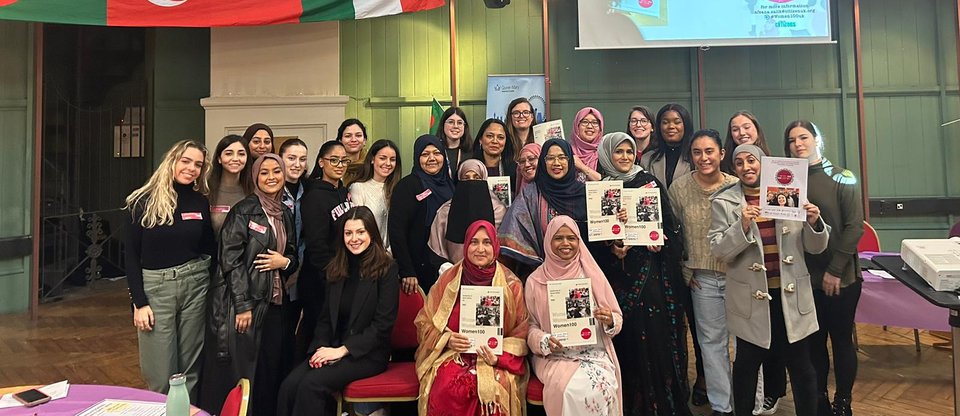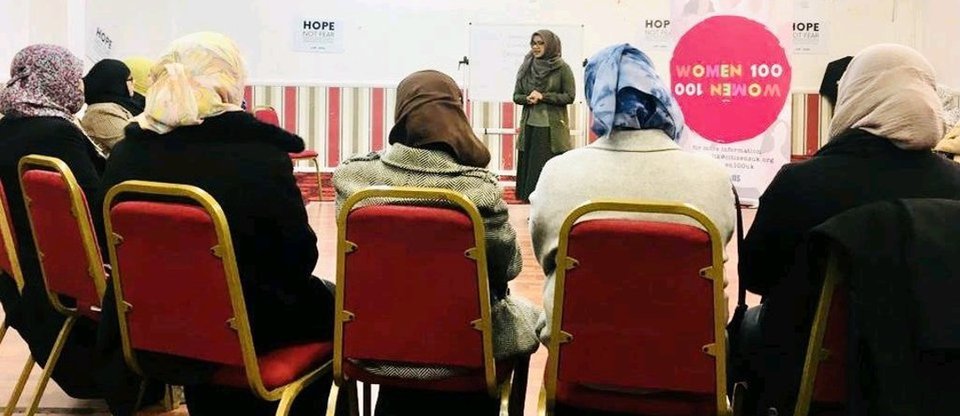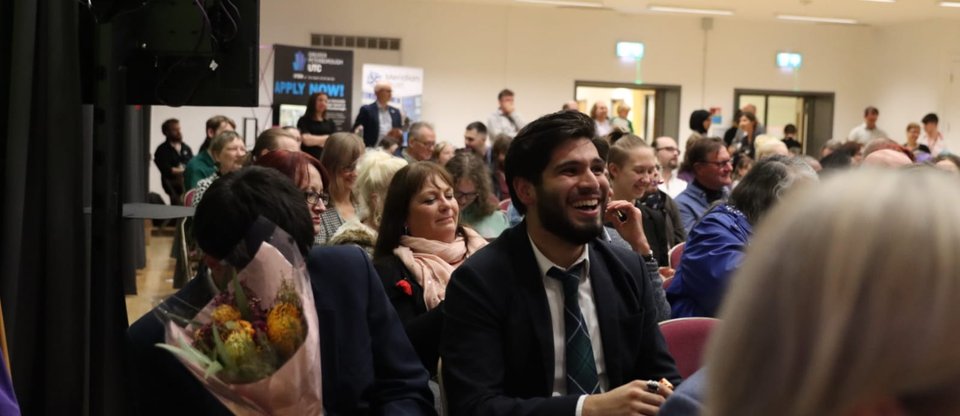'Women not allowed'
When I hear the phrase ‘women's empowerment’, I don’t imagine a strong, suited and booted group of women pushing their way through society, or a once oppressed woman having found her voice and power through some sort of heroic inner and outer journey. Instead, I see my mother - a quietly spoken and humble Bangladeshi woman with broken English, whose life is layered with story upon story of breaking the status quo.
In one such instance, she alone fought against a body of traditional Bangladeshi men, most of who were stuck in a mentality that said women should be subservient. My mother challenged these men and managed to achieve what seemed impossible to all – persuading a local Mosque to open its doors to women for the first time.
My mother’s approach was not a bolshie, shouting, domineering style of working. She used a gentle charm and language peppered with grace. She showed these men the utmost respect, gathered the support of local young men whom she had seen grow up from a young age and empowered them to become her voice in circles and rooms where women were not seen nor heard.
Her work didn’t stop there – she sparked the interest of local women, particularly those who had not ventured beyond school runs and GP appointments. Visits were made to their homes with a simple knock on the door whilst holding a tupperware box filled with home cooked food. My mother would be invited to take tea with the mother in laws, winning the trust and respect of their husbands and in turn inviting them over for a visit to our home. She warmed the heart and stomachs of these women and their families and won their trust. I watched all this with a certain degree of disinterest at the time, not quite appreciating until years later, the magnitude of what my mother had managed to achieve. I am now forever in awe.

But how did my mother manage to defy the traditional status quo upheld by the men who presided over the local mosque with an iron fist and achieve exactly what she had intended to do?
My mother’s vision was simple - to gather local women in a safe community setting and to teach the Quran. Simple though it was, it became almost impossible when she set her eyes on a potential place to host these gatherings – the local Mosque. This was a makeshift Mosque – a porta cabin come Mosque, hanging on to a distant promise of future funding which would turn it into the grand building it will one day become. It sat empty and derelict at most times and only came to life during the five daily prayers, when a handful of men would shift themselves in and out of the doors. My mother started to make enquiries but the door was shut on her after being told:
“No women are allowed.”
Cast forward a couple of weeks after this incident as my memory follows my mother, stood in front of the porta cabin Mosque.
She reads the sign:
“xxxxxxx Mosque and Cultural Centre”.
She repeats the words:
“Cultural Centre….Cultural Centre…”
She copies down these words onto a piece of scrap paper and goes home to seek me out.
“What do these words mean?”
I remember her asking me this question and I don’t know if I gave any kind of useful information, but it was enough for my mother to know that something wasn’t adding up here.
“Why call it a Cultural Centre and not just a mosque?”
She posed this question to one of the young men from the community. A few enquiries made here and with some prodding there, my mother got the answer. It transpired that the Mosque had received funding to also have designated space for community use which included both men AND women, hence the name, ‘Cultural Centre’. The ‘penny’ dropped (no pun intended) and after petitioning to the board of men governing the Mosque, a set of keys was begrudgingly given to my mum.

And so it began, a weekly women’s gathering taking place every Saturday morning, at which women from all over the locality gathered. A group made up of mother in laws, hand in hand with their grandchildren and daughter in laws, mothers with their daughters, husbands dropping off their wives, was all proof of how much my mother’s tea invites had worked. Every Saturday morning, I would watch through a sleepy haze at my mum rattling around our shared bedroom, as she hoisted a small karaoke machine and mic for the presentations she would deliver in one hand, floor mats to keep the women warm, stuffed in a carrier bag held in the other hand. Her presentation notes would be carefully folded up inside her side bag which she would shake every now and then to confirm the jangling noise of the precious set of keys to the Mosque.
Why am I telling this story? Because for me, this embodiment of female empowerment is something I have always aspired to reach but often failed to match. Quick results and fast deadlines often push us into a rat race where we have no time to take tea or learn the names of our neighbour’s children. Instead, we prefer the safety of a whatsapp message and emails to get what we want, and to justify that we have no time for anything else.
My mother also showed me that female empowerment does not need to evoke hostility, raised voices or aggression to get results. Her desire was to serve others in need by taking the opportunities available, reaching out to those around her and then quietly putting in place all of the pieces needed, she achieved what she had set out to do.
From the Mosque Governing Board, to the mother in laws sipping tea – my mother earned respect and warmed hearts. Despite moving away from the area nearly a decade ago, my mother still walks back into the area like a celebrity, welcomed home by the locals still living there. The young men insist on giving her lifts if they see her walking around, and on carrying her shopping if she was burdened with bags. But being the person she is, my mother looks back with a sense of longing and regret – she could have done more, pushed a bit more, reached more women, drank more tea. And this is the biggest lesson which I have taken away from this part of my mother’s life – to spend time with others, drink some tea and never accept that “women are not allowed”.

Find your local chapter and join us as an institution.




